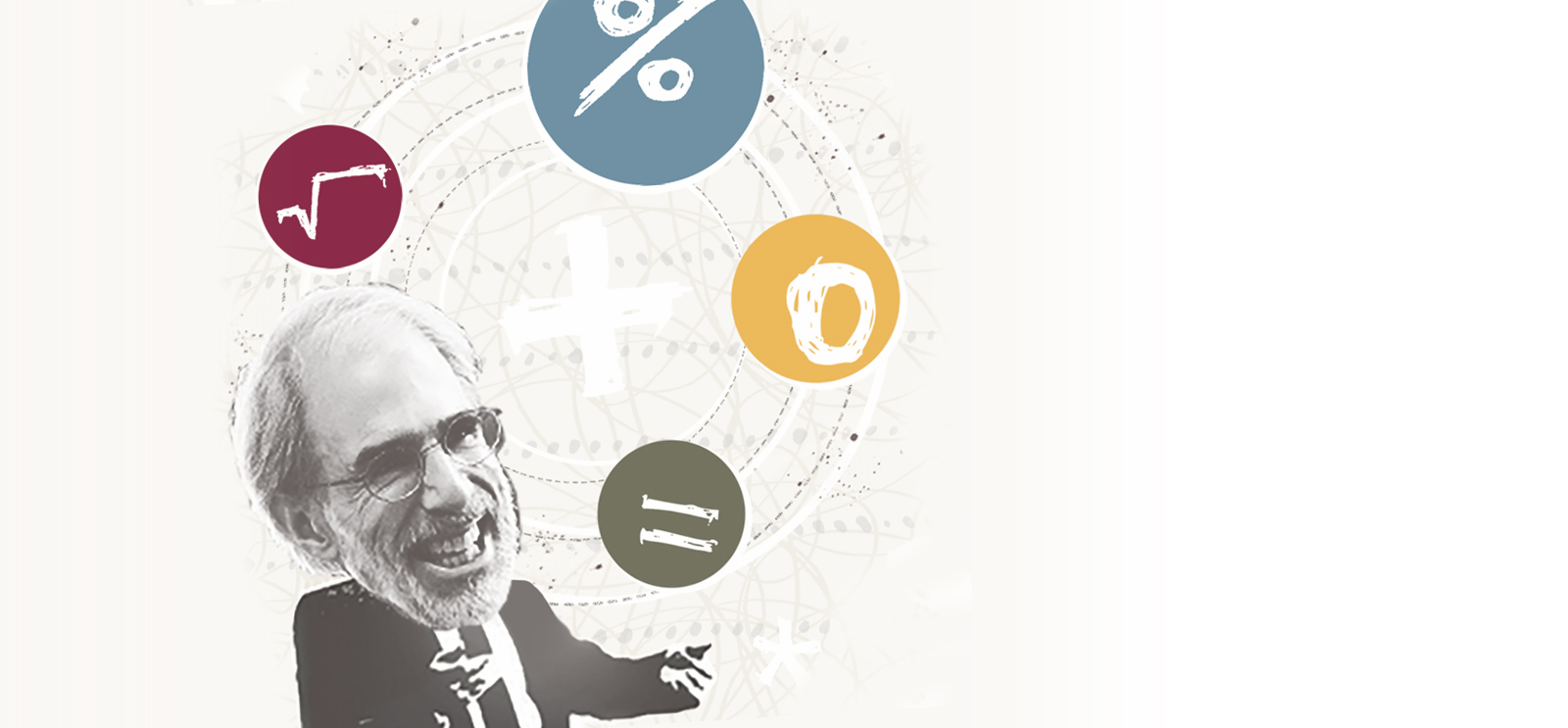
After UC Berkeley mathematics professor David Eisenbud, SB’66, SM’67, PhD’70, regaled Inquiry with stories of the math behind juggling and playing the krummhorn with famed musicologist Howard Mayer Brown, we decided readers should get the chance to pick his brain too. Last month we asked you to submit questions, and on December 30 Eisenbud responded to them. His answers to readers’ Facebook queries are edited and adapted below.

Have the advances in computational capacity over the last few years changed the way you approach proofs? Or is your work so theoretical that it doesn’t matter? Also, have you ever wanted to, in a James Cagney–like voice, call someone a lousy krummhorn?*
Krummhorns are too nice (and sensitive!) to use them for insults.
I read an essay a while back that hypothesized that the ideal pop song length is 2:42, and I was wondering if you, as a musician and mathematician, could determine how long the perfect song is and explain why?
The length of the ideal song? I had no idea about this theory! Doesn’t it depend how fast you sing it? I sing a lot of art songs—Brahms, Schubert—with pianist friends, and the goal is to be expressive and play with time. That said, it’s true that most of them last 2–3 minutes. So maybe 2:42 isn’t so crazy.
(1) Do you think innumeracy is a serious problem facing our society today? (2) What’s the best popular-level book on mathematics that you’ve read?
A great recent popular book for grown-ups is How Not to be Wrong, by Jordan Ellenberg. Another, for kids, is Really Big Numbers by Richard Evan Schwartz. (Full disclosure: they’re both friends.) Yes, innumeracy is a BIG problem—exemplified by how willing/eager people are to declare, “I never could do/always hated math.” Would anyone say that about reading?
What’s the best way for adults to keep their math skills up when they really only do simple math on a regular basis? Asking for a friend who couldn’t help her nephew with his homework.
Reading popular books and thinking about math puzzles will keep your skills. Unfortunately “helping with homework” often requires knowing the jargon in the textbook. I guess reading your kids’ textbooks would be the best (only?) way.
What’s your Erdös number?
I’m proud to say it’s two: I’ve written a paper with Ron Graham, EX’54, who has written many papers with Erdös. (The paper was about juggling!)
Most of us nonmath people see terms like “noncommutative ring theory” and want to run for the hills. In plain English, what’s an advanced math question that you find really fascinating, and why?
Here’s a math question that’s solved: if you take a smooth curved piece of rope floating in the middle of a room and shine a light on it from a fairly random angle, then its shadow on the floor will have places where two “branches” of the shadow cross ... but never three. People understand how to “project” surfaces into 3-D space, too, and some more cases ... but when the dimensions get really high, we don’t understand so well. That’s a question I’ve worked on.
Math, music, and juggling seem to go together. Is there a common denominator (har har) between these talents that makes you expert in each?
Music and juggling and math: Nothing makes one expert in these things but a LOT of practice! I like the social aspects of music (chamber music) and juggling (passing clubs) the best; they do seem to share something. Oddly enough, collaborating on math projects has some of the same pleasures.
As the mom of two young girls (3 and 5), what are some things that I can do to encourage them in their love of math?
Encouraging kids to love math: Check out an activity called Math Circles (mathcircles.org) that exists to help kids become passionate about math! The Mathematical Sciences Research Institute (MSRI) was instrumental in making this movement grow in the United States.; it’s been around in Eastern Europe for a long time. Also check out mathicalbooks.org for a prize MSRI gives for children’s books related to math (NOT workbooks!).
Juggling five pins : Second movement of Tchaikovsky’s 6th :: Insolvability of the quintic : ?
Well, certainly, juggling five pins is insolvable for me! But the quintic (that is solving the general quintic by means of roots—as with the quadratic formula we all know) is so much harder ... voire impossible, forever and for everybody. It’s still amazing to me that we can KNOW that with certainty.
In terms of fictional mathematicians, we are kind of partial to the Count from Sesame Street, but in your mind: Who is the best mathematician in pop culture—and why?
The truth is that I’m pretty much out of it in pop culture—I can’t do any trivia games! But there are a lot of great math jokes on the Simpsons, for example (and a nice book by Simon Singh, who has written a lot of other excellent popular math books too!).
*Eisenbud chose this question as his favorite, earning the questioner a prize.
